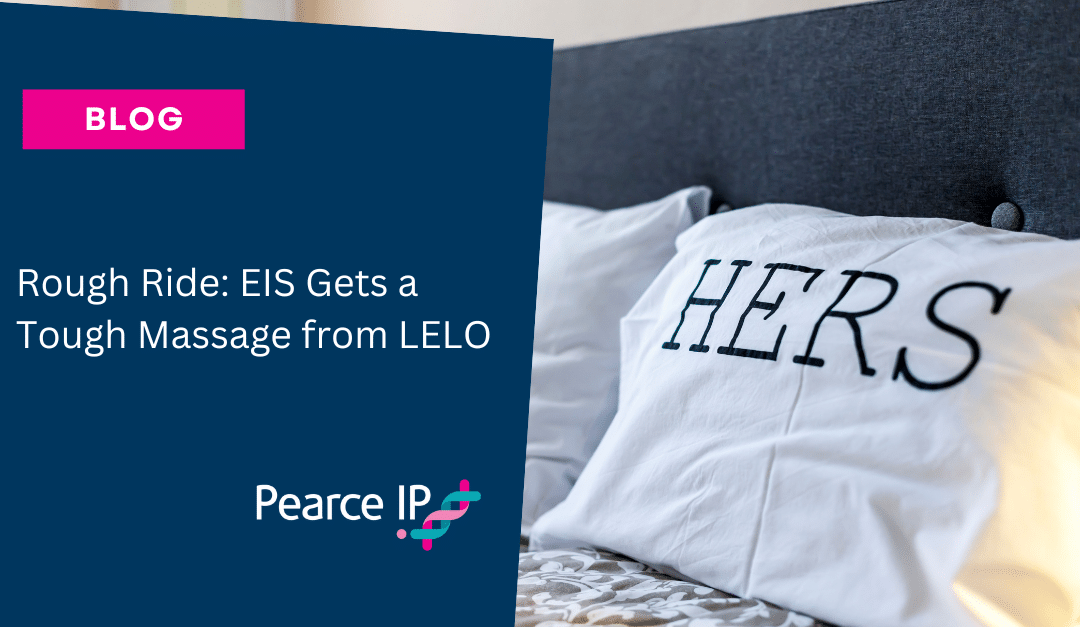| Date of decision: | 3 July 2024 |
| Body: | Federal Court of Australia |
| Adjudicator: | Justice Downes |
Background
The applicant, EIS GmbH (EIS) initiated Federal Court proceedings against the respondents, LELO Oceania Pty LTD and LELOiAB (LELO) (and separately against Calvista Australia Pty Ltd, a distributor of LELO’s products in Australia) alleging infringement of Australian patent 2018200317 (Patent) which relates to a feminine pressure wave massager. LELO denied infringement and cross-claimed for revocation. The proceedings have been set down for trial in February 2025.
This decision concerned LELO’s application for an order under r 34.50(2)(b) of the Federal Court Rules 2011 (Cth) (‘Rules’) for:
… leave to rely on the affidavit of Michael Duff affirmed on 6 March 2024 (and annexures “MD-11”, “MD-13” and “MD-14”) as evidence of the conduct and results of experiments performed in Suzhou, China on a Satisfyer Pro 2, Womanizer W100 and Womanizer W500.
Under r 34.50(1)(a), when a party wishes to submit experimental proof as evidence in a proceeding, they must first apply for orders related to the experiment, including orders about the following:
- the service on other parties of particulars of the experiment and of each fact that the proponent asserts is, will or may be proved by the experiment;
- any persons who must be permitted to attend the conduct of the experiment;
- the time when, and the place where, the experiment must be conducted;
- the means by which the conduct and results of the experiment must be recorded;
- the time by which any other party (the opponent) must notify the proponent of any grounds on which the opponent will contend that the experiment does not prove a fact that the proponent asserts is, will or may be proved by the experiment.
Under r34.50(2), experimental evidence will only be admissible if the party proposing to file experimental evidence has complied with r 34.50(1), unless the Court otherwise grants leave.
Prior to LELO’s application, EIS had applied to the Court seeking orders to rely on experimental testing of LELO’s allegedly infringing massager. The purpose of the testing was to measure the volume change in the cavity of the pressure wave massagers during operation to prove that the volume change ratios and pressure fields generated fell within the scope of the Patent claims. LELO challenged EIS’ Notice of Experiments, arguing that the results of the experiment would not be relevant and raised further concerns regarding the accuracy and reliability of the experimental protocol. Ultimately, Nicholas J made orders granting leave to EIS to tender experimental evidence at trial, but noting that LELO had reserved its right to argue at trial that EIS’ experimental evidence was neither relevant nor accurate.
The experiments which LELO’s expert, Mr Duff, conducted in his laboratory in Suzhou, China generally followed the same protocol which EIS had used for the conduct of EIS’ experiments, but with some improvements said to increase accuracy. LELO did not apply to the Court for an order pursuant to r 34.50(1) prior to conducting those experiments, claiming that it was not practical to give such notice to EIS and seek such orders due to the tight Court timetable for the filing of evidence in chief on invalidity. LELO instead proposed that EIS watch the video it had made of the conduct of Mr Duff’s experiments, and also offered to repeat the experiments at a later time. EIS declined to watch the video and did not consider that the experiments should be repeated.
Key Issues
The key issue for Justice Downes was whether to grant leave under r 34.50(2) to LELO to rely on the experiments already conducted by Mr Duff. EIS opposed the Court granting leave primarily on the basis that EIS would suffer prejudice both in prosecuting its infringement case and in defending LELO’s cross-claim for invalidity. EIS raised the following key arguments in support of its position:
- Contemporaneous records
EIS submitted that the experiments were undertaken by Mr Duff’s team and that there were no contemporaneous records of the conduct and results of the experiments. Justice Downes observed that EIS had relied upon the affidavit evidence of Mr Payne (who conducted EIS’ experiment) which also did not annex such contemporaneous records. In any case, her Honour considered that this objection could be dealt with at trial.
- Lack of representatives
EIS submitted that it had not been given the opportunity to have its representative attend Mr Duff’s experiments and that the video was “limited to what [Mr Duff’s team] elected to film”. Justice Downes did not consider this submission to be persuasive as EIS had never requested to view the footage despite being offered nor accepted the invitation by LELO to have the experiments repeated.
- Independent expert
EIS submitted that Mr Duff was not an independent expert, but was aligned with and had an interest in LELO succeeding. Justice Downes declined to determine this issue at this stage of the proceeding, particularly given that Mr Duff was yet to be cross-examined on his evidence.
- Experimental protocol
EIS submitted that Mr Duff’s affidavit did not disclose a clear experimental protocol. Justice Downes disagreed, observing that Mr Duff’s evidence indicated that he had followed the same protocol as that used for EIS’s experiments, albeit with some identified changes. In any case, her Honour considered that whether there had been a failure to disclose Mr Duff’s experimental protocol was an issue to be addressed at the trial.
- Massagers
EIS raised a number of issues in relation to the massagers that Mr Duff tested in his experiments. EIS’ key argument was that it was no longer possible to inspect any of these massagers to confirm their authenticity as they had been destroyed during testing. Her Honour rejected this submission, finding that the massagers were in fact not destroyed and were available for inspection, although not in their original state. Furthermore, EIS could also inspect undamaged versions of the devices prior to any further experimentation.
- Analogous decisions
EIS argued that refusing leave would “accord with previous decisions” of the Federal Court involving analogous facts. EIS relied on the decisions of Justice Jagot in Bayer Pharma Aktiengesellschaft v Generic Health Pty Ltd [2013] FCA 226 and Beadcrete Pty Ltd v Fei Yu trading as Jewels 4 Pools [2012] FCA 1091. Justice Downes distinguished these cases on the following bases:
- In Bayer, the applicant brought the application on the first day of the hearing, and did not offer to repeat the experiments; nor was there any indication that the experiments had been video-recorded.
- In Beadcrete, the party seeking leave did not provide any explanation as to why they failed to seek orders pursuant to r 34.50 before carrying out the experiment. Furthermore, the experiments caused the samples to be destroyed.
Outcome
Justice Downes held that LELO’s application should succeed and made orders granting leave to rely on Mr Duff’s affidavit evidence of the conduct and results of the experiments he performed in Suzhou, China. Her Honour also ordered EIS to pay LELO’s costs of its application for leave to rely on experimental evidence.
Implications
Justice Downes’ judgment provides guidance to litigants who may wish to rely on the Court’s discretion to grant leave to admit experimental evidence under r 34.50. In particular, her Honour’s judgment illustrates:
- The importance of taking reasonable steps to promote transparency and fairness to the opposing party, if a party decides that it wishes to rely on experimental evidence but is not able to comply with r 34.50(1)(a) prior to conducting the experiments.
- That steps to document and maintain records of experiments (such as video recording) will be viewed favourably by the Court when considering whether to grant leave. Informing the opposing party of the experimental protocol, remaining substantially consistent with an earlier protocol, and offering to repeat experiments at a later time are also likely support an application under r 34.50(2).
- That questions regarding the accuracy, reliability, or credibility of experiments are likely to be deferred to and addressed at trial.
The order that EIS pay LELO’s costs also highlights the monetary cost associated with procedural disputes of this nature. Cost penalties may arise when objections are not substantiated and the opposing party fails to cooperate or engage with the reasonable efforts of the other party to conduct experiments in a transparent and fair manner, despite not having applied for orders and r 34.50(1).
About Pearce IP
Pearce IP is a boutique firm offering intellectual property specialist lawyers, patent attorneys and trade mark attorneys to the life sciences industries (in particular, pharmaceutical, biopharmaceutical, biotech, ag-tech and food tech). Pearce IP is the 2021 ‘Intellectual Property Team of the Year’ (Lawyers Weekly Australian Law Awards) and was shortlisted for the same award in 2022. Pearce IP is ranked in IAM Patent 1000 and Managing IP (MIP) IP Stars, in Australasian Lawyer 5 Star Awards as a ‘5 Star’ firm, and the Legal 500 APAC Guide for Intellectual Property.
Our leaders have been recognised in virtually every notable IP listing for their legal, patent and trade mark excellence including: IAM Patent 1000, IAM Strategy 300, MIP IP Stars, Doyles Guide, WIPR Leaders, 5 Star IP Lawyers, Best Lawyers, and Australasian Lawyer 5 Star Awards, and have been honoured with many awards including Australian Law Awards – IP Partner of the Year, Women in Law Awards – Partner of the Year, Women in Business Law Awards - Patent Lawyer of the Year (Asia Pacific), Most Influential Lawyers (Changemaker), among other awards.

Naomi Pearce
CEO, Executive Lawyer (AU, NZ), Patent & Trade Mark Attorney (AU, NZ)
Naomi is the founder of Pearce IP, and is one of Australia’s leading IP practitioners. Naomi is a market leading, strategic, commercially astute, patent lawyer, patent attorney and trade mark attorney, with over 25 years’ experience, and a background in molecular biology/biochemistry. Ranked in virtually every notable legal directory, highly regarded by peers and clients, with a background in molecular biology, Naomi is renown for her successful and elegant IP/legal strategies.
Among other awards, Naomi is ranked in Chambers, IAM Patent 1000, IAM Strategy 300, is a MIP “Patent Star”, and is recognised as a WIPR Leader for patents and trade marks. Naomi is the 2023 Lawyers Weekly “IP Partner of the Year”, the 2022 Lexology client choice award recipient for Life Sciences, the 2022 Asia Pacific Women in Business Law “Patent Lawyer of the Year” and the 2021 Lawyers Weekly Women in Law SME “Partner of the Year”. Naomi is the founder of Pearce IP, which commenced in 2017 and won 2021 “IP Team of the Year” at the Australian Law Awards.

Helen Macpherson
Executive, Lawyer (Head of Litigation –Australia)
Helen has over 25 years’ experience as an intellectual property specialist and is recognised as an industry leader. Helen advises on all forms of intellectual property including patents, plant breeder’s rights, trade marks, copyright and confidential information.
Throughout her career, Helen has maintained a strong focus on high-value patent mandates involving complex technologies. In these mandates, Helen has been able to draw upon her technical training in biochemistry and molecular biology, as well as her ability to up-skill swiftly in relation to diverse technologies. Helen’s patent work has encompassed the technical fields of inorganic, organic, physical and process chemistry, biochemistry, biotechnology (including genetics, molecular biology and virology) and physics.
Helen is a member of the Intellectual Property Committee of the Law Council of Australia, as well as a member of the Intellectual Property Society of Australia and New Zealand.

Nathan Kan
Graduate (Law)
Nathan is a Graduate (Law) focused on providing legal services and advice to life sciences clients, with a focus on litigation support regarding intellectual property (patents, trade marks, designs, copyright, domain names, plant breeders rights and confidential information) and commercial disputes.
Nathan is passionate about the intersection of law and science. Whilst serving as Sponsorship Director and subsequently as Vice President of the Science and Technology Law Association (SATLA) at the University of Melbourne, he led various engagement events, workshops and publications covering a range of STEM fields, including life sciences, artificial intelligence and digital transformation.

